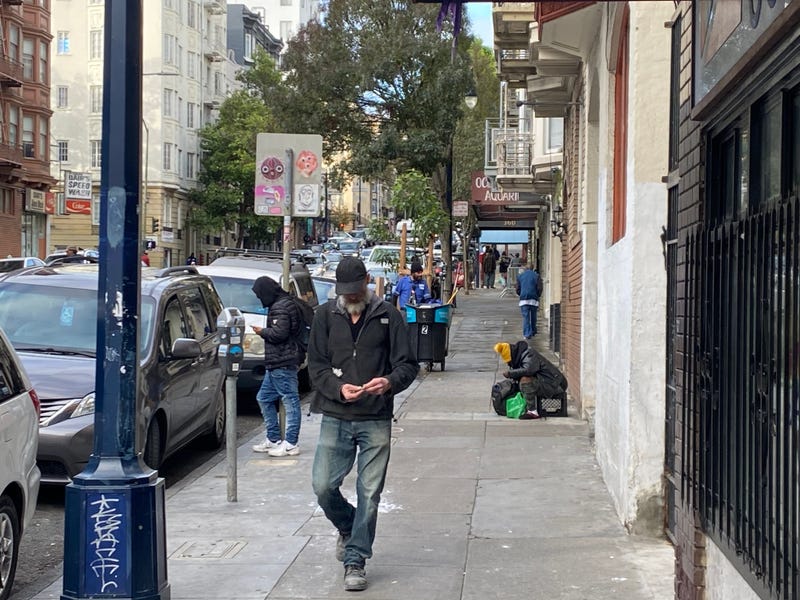
After living in an apartment at Ocean Beach for years, David has found himself at a Tenderloin hotel.
"I literally was working in the Tenderloin," he said. "I go like 'Man, I’m never gonna live here ever in my life. What happens?'"
David is 61 and homeless. So, he qualified for a room from the city. He even got assigned a buddy named Maryann Philbrook, who volunteers to call him every night through a program called Miracle Friends.
"She’s really cool. She’s a really nice person," David said. "It’s really nice to talk to her once a night just to talk to her."
"He’s told me he looks forward to my calls and that he’s grateful," said Philbrook. "I’ve been surprised at how much it feels like a check-in for me, too."
We are all feeling isolated right now, but COVID-19 has been devastating for David. He has worked in security all his life, manning concerts at the Regency Ballroom and the Fillmore.
"There’s no work. Because of the virus, you can’t have 2,500 people in a crowd," he explained. "I had an apartment and all of a sudden you can’t afford it any more. It’s like ok, you go homeless."
Analysis by Columbia University professor Dan O’Flaherty found homelessness could rise 40 to 45 percent nationwide this year amid the economic fallout from the pandemic.
"There’s no question we’re going to see an increase in homelessness," UC Berkeley researcher Chris Herring said. "How much, is a big question of how much we’re able to intervene in the meantime."
The interim head of San Francisco’s Department of Homelessness and Supportive Housing, Abigail Stewart-Kahn, also worries about what will happen when eviction moratoriums are lifted. She says last year, San Francisco helped end homelessness for more people than ever before. Even so, she says: "For every person who we help to end their experience of homelessness, three people are becoming homeless in their place."
The pandemic is speeding up efforts and prompting the city to try new things, such as tent villages. But Stewart-Kahn explaned overall: "We have the strategy. We need to stick to it. We need to put it on steroids, thanks to the pandemic, and we need to bring in a little bit of innovation around the edges. But we don’t need to recreate the wheel."
San Francisco Coalition on Homelessness Organizer, Brian Edwards, believes more can be done.
"San Francisco has an opportunity right now with the vacancies in hotel rooms to be the first city to end widespread homelessness," he said.
That is what David wants for everyone. "I step outside to have a cigarette and I look at a lot of people who can’t be in this position. I got a room and they don’t and I feel really bad for them. It hurts me in my heart."
He cannot wait to go back to work, and says the room will help him start over.
"Thank you, San Francisco.” he said. "I’ve worked all my life in San Francisco. Thank you. That’s all I can say."

